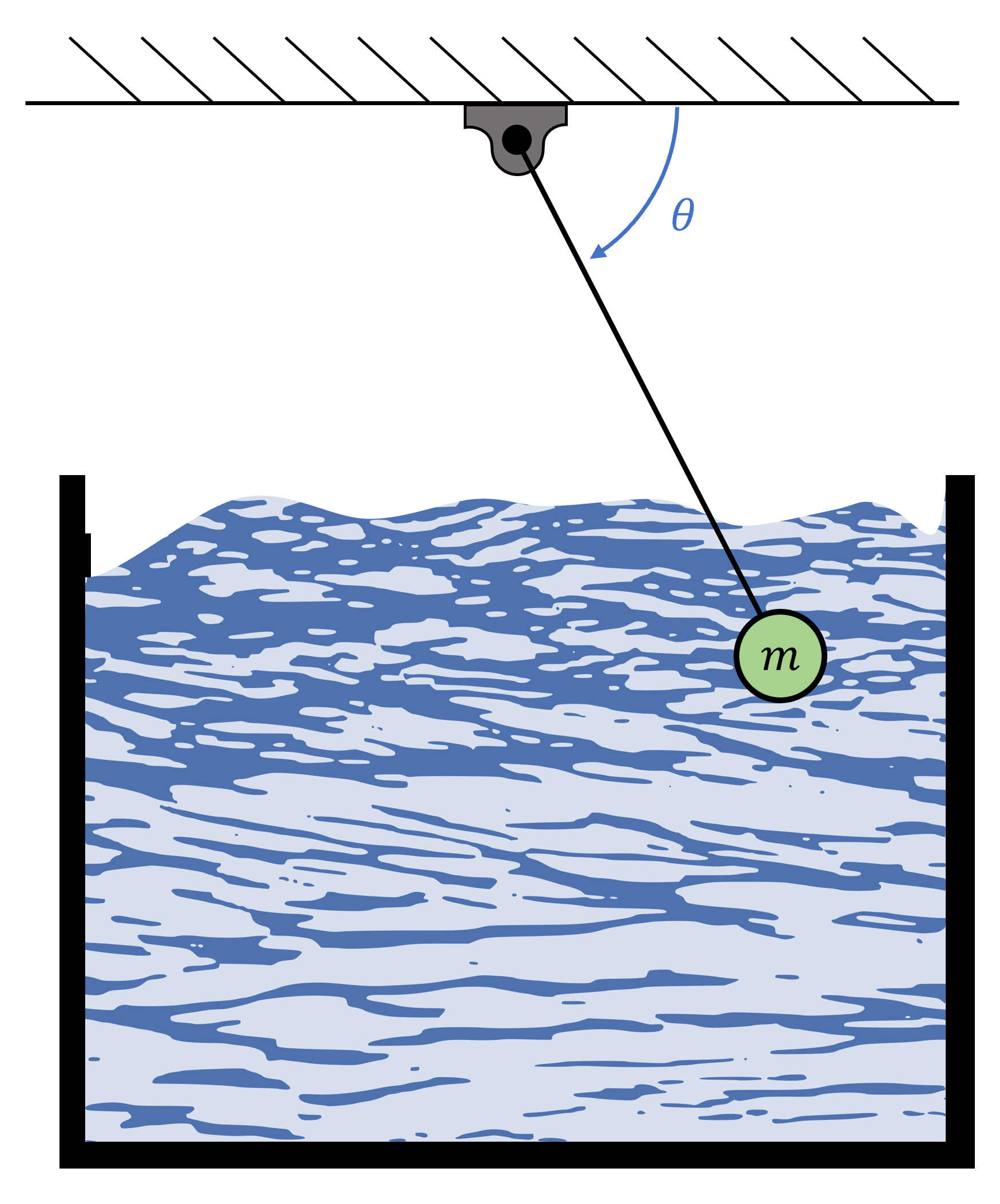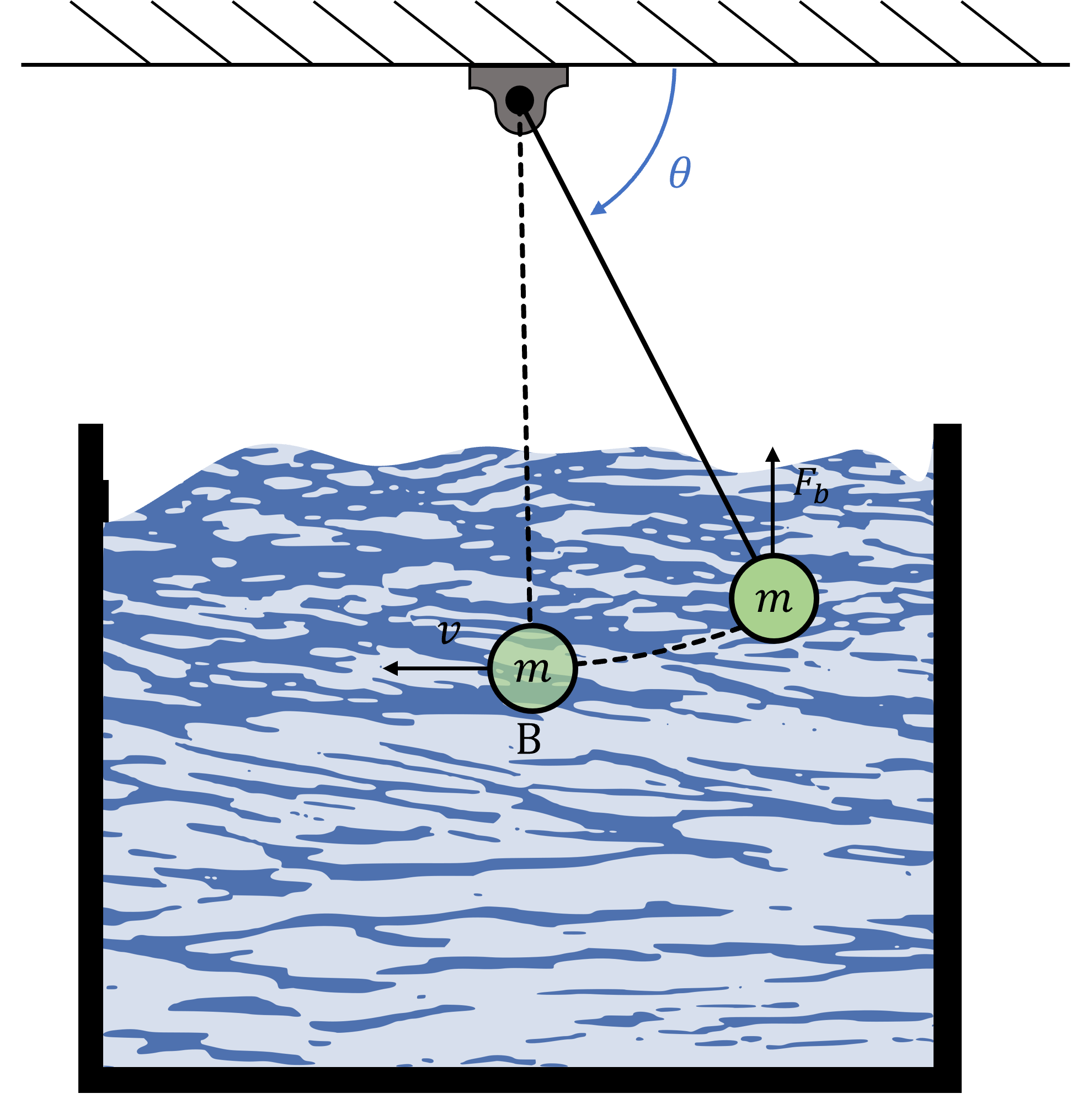Pendulum Kinetics#
A pendulum submerged in a fluid with the bob initially held at an angle of \(\theta^{\circ}\) degrees measured from below the horizontal, is released from rest as illustrated below.

Part 1#
If in addition to the tension in the string and weight of the bob, a buoyant force of constant magnitude and direction acts on the bob according to the equation; \(F\_{b}=\rho g V\), where \(\rho\) is the fluid density, \(V\) is the volume of fluid displaced, and \(g\) is the gravitational acceleration. Determine the work-done by the buoyant force on the bob when it reaches point B as shown below.
\(\theta = {{ params.theta }}^{\circ}\), \(L = {{ params.l }} \ \rm{m}\), \(V\_{bob} = {{ params.v }} \ \rm{m^3}\), \(\rho = {{ params.p }}\ \rm{kg.m^{-3}}\).

Answer Section#
Please enter in a numeric value in \(\rm{N.m}\).
Part 2#
Determine the speed of the bob at point B.
\(m = {{ params.m }} \ \rm{kg}\).
Answer Section#
Please enter in a numeric value in \(m/s\).
Part 3#
Determine the maximum tension force in the string through the pendulum motion.
Answer Section#
Please enter in a numeric value in \(N\).
Part 4#
Determine the centripetal force in the string at point B.
Answer Section#
Please enter in a numeric value in \(N\).
Attribution#
Problem is licensed under the CC-BY-NC-SA 4.0 license.

